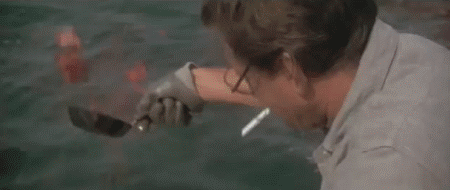Originally published at: http://boingboing.net/2017/08/02/armed-with-leaked-transcript.html
…
A friend was pointing out that the reason that Scaramucci got into big trouble fast is that he was accustomed to the sort of softly softly approach from the WSJ and other financial press rather than the more thorough questioning and quoting from political press.
Wow. After skimming that transcript it’s clear that the WSJ was just looking for filler. If I only a had a bird cage…
I keep hoping the constant need for Trump to proclaim something he was involved in as “the best ever” or “the biggest ever” will start to eat away at even his staunchest supporters.
People have got to see through that, right?
Please?
I see little reason to think that his political supporters will be able to see through this BS than his customers have been.
C’mon. . . I said “please.”
Take away: Baker is a huge ass kisser. WSJ is an embarrassing shell of its former self.
They do. They don’t care. Trump is sticking it to libtards, and that’s all that matters.
Remember, these are people who blame Obama and Hillary because they lost their jobs when the factory/mine automated, and they don’t have the marketable skills to get another one.
Chummy? Or playing the game? You catch more yellow jackets with honey than vinegar. It might feel great to you to berate your interview subject but it rarely gets them talking.
Trump is also entitled to make off the record comments and have journalists protect him from having off the record comments exposed.
Just as we expect reporters to protect secret sources in the WH and elsewhere - such as whistle blowers. The WSJ’s leak of the transcript is bad for journalism.
Why?
Because otherwise no one will talk to journalists OTR. Such as (as I pointed out) whistle blowers and also intelligence sources. With negative results for investigations. It’s called professional ethics. It is the golden rule of journalism always protect your source. Even if you hate and despise them. It’s like confessional or lawyer/client privilege and must be defended at all costs.
OK, but protecting the source doesn’t mean you are ethically not allowed to publish off the record remarks. When Trump just lies about something and then his team says “don’t publish that” you are not protecting a source by following Trump’s team’s directive. There is not such ethical confidentiality agreements between a journalist in an interview like there is between a doctor and patient or a lawyer and their client - journalists are explicitly expected to publish the information that is important regardless of the source’s wishes when providing the information.
The WSJ leaked their on the record interview to another site, and that site published it - because editing the interview down to make Trump look good and like he’s not lying all the time as POTUS has nothing to do with professional ethics.
Yes. Yes it does. Off the record mean exactly that. It doesn’t have the force of law in the US but it is a disgrace for any journalist to betray a source in that way. As a journalist I would never have done it - no matter how tempted.
You are talking about something totally different. Hence it was totally okay for the Mooch’s rant to be published ( he did not say OTR first)
You plain do not understand journalistic ethics. The rules are simple - if they say off the record, you do not print it. or leak it someone else. You do not use it as an unattrib quote. The ethical rules are there for the good reasons I tried to explain to you. It’s about trust and respect. If everyone who rings, emails or whatsapps a hack with story thinks they might be betrayed they won’t do it.
You’re clearly not a reporter or someone who ever has to talk to them.
Look at this: https://www.spj.org/quill_issue.asp?ref=829
See also: https://en.wikipedia.org/wiki/Source_(journalism)
So what are you talking about then, because your claim is that the WSJ violated journalistic ethics, and your defense of your logic so far as been “no true journalist would violate ethics.” Both links you provide don’t explain what your point is, and the spj article in particular has absolutely nothing to do with what you are talking about whatsoever.
Why does Trump deserve to have editorial rights over his interview, and why is the WSJ leaking the interview a violation of the very institution of journalism?
EDIT
And the Wikipedia page seems to disagree with what you are saying about off the record sources, since I can’t find anywhere that says you cannot have unattributed quotes from off the record sources and leads are cited frequently as a part of investigative journalism. Anonymity of a source is one thing, saying there is a layer of provided knowledge that should never be made public is another.
And the entire ethics around not releasing a source is based on there being a higher level of power that will bring retribution down on the source, so what is the greater authority over Trump that means that he is allowed to manipulate the media to the government he runs’ taste?



I agree for explicit “off the record” discussions - but is there a suggestion that this is what happened here? It seems like this was an explicit on the record interview, and WSJ chose to use part of it but not other parts.
Wait wait wait, you’re saying that you should never leak things that are off the record in order to reassure people who leak off the record information?
If a journalist talks to someone off the record, would that not imply they are not being a journalist just then?

